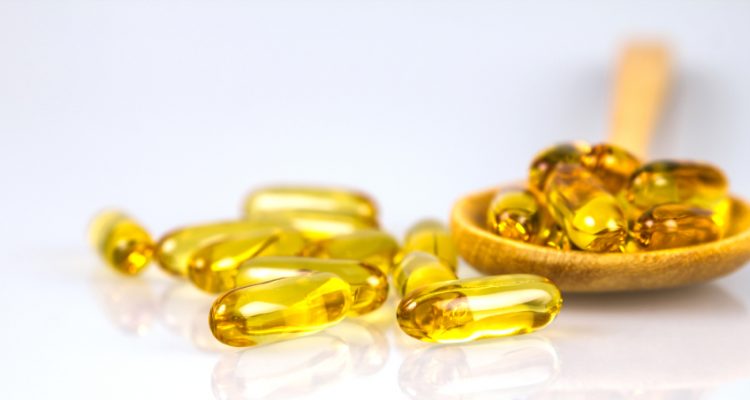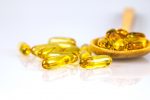
Do you find you’re excessively scratching because your skin is dry? Have overly chapped lips? Feeling overly fatigued on a regular basis? The latter may be dismissed as a result of a bad night’s sleep; however, it may be a deeper issue than that. Your body has a way of letting you know that something is wrong. With an extremely busy schedule, your basic needs, such as eating a well-balanced diet, may be overlooked.
Many of the symptoms that I have just described can easily be attributed to three key vitamin deficiencies—and they can be dangerous to your health.
Here are three important vitamins that may be missing from your diet and some of the common symptoms that may occur as a result:
1. Riboflavin (Vitamin B2)
Riboflavin is important in the metabolism of carbohydrates, protein, and fat, and it also has antioxidative properties. Because of its major role in the metabolism of cells, tissues that have rapid turnover, such as the skin, show the first signs of this vitamin deficiency.
Symptoms: It is common to have dry, scaly skin, itching and burning eyes, and burning of the lips, mouth, and tongue. In extreme vitamin deficiency cases, it can lead to light sensitivity, cracks in the corner of your mouth, a purple, swollen tongue, and even nerve damage.
Dosage: It is important for males to consume 1.3 mg and for females 1.1 mg of riboflavin a day.
Food Sources: Riboflavin can be found in green leafy vegetables such as spinach or collard greens, meat, and dairy products and some breads and cereals that are fortified with this vitamin.
2. Vitamin B12
Vitamin B12 plays an important role in normal brain function and the nervous system. It is also critical in blood formation and cell metabolism, especially in the gastrointestinal tract, bone marrow, and nerve tissue. As long as you’re adequately nourished with a well-balanced diet, your body is able to maintain a store of this vitamin in your liver. Your body is always circulating and reabsorbing it. It takes about five to six years for a serious vitamin deficiency to occur.
Symptoms: Vitamin deficiencies are common among vegetarians and the elderly (due to their decreased ability to absorb nutrients in the gut). Low levels of this nutrient can lead to fatigue, depression, poor memory, numbness, and tingling of your extremities. A type of anemia called megaloblastic anemia (abnormally large blood cells due to impaired cell division) can occur and folate supplementation can mask these effects, while other symptoms progress. Extreme vitamin deficiency can cause severe, irreversible nerve damage.
Dosage: Make sure to get at least 2.4 micrograms of vitamin B12 each day.
Food Sources: Animals are the best food source of B12, due to their exceptional ability to store it. The richest food sources are animal sources including liver, kidney, muscle meats, milk, cheese, eggs, and fish.
3. Vitamin A
Vitamin A, also known as retinol or A carotenoid (most common being beta carotene), plays a key role in vision, immunity, growth & development, reproduction, and also has antioxidative properties. Since it is a fat-soluble vitamin, for proper absorption and storage, your diet must include adequate fat intake. Most of the vitamin A in your body is stored in the liver, while some of it is stored within the fat tissues. In order for vitamin A to be delivered to the tissues in your body where it’s needed, it must first bind to a protein, thus making it important to ensure your diet includes adequate amounts of protein as well.
Symptoms: Vitamin deficiency in this nutrient can lead to impaired or blurry vision, impaired embryonic development or spontaneous abortions, anemia, and increased susceptibility to infection. It can also cause your skin to become bumpy, dry, scaly and rough. Extreme vitamin deficiency can eventually lead to blindness and poor growth. However, it is important to be cautious when using supplements, as excessive amounts can lead to dryness of skin and lips, hair loss, nail fragility and one study even found that it may increase risk of hip fractures.
Dosage: For males, it is recommended to consume 900 RAE per day, 700 RAE per day for females, making sure not to exceed 3,000 RAE each day.
Food Sources: The best sources for vitamin A include animal sources such as liver or fat from milk and eggs. The best vegetarian sources are from dark leafy greens and yellow-orange vegetables or fruit; the deeper the color, the higher the vitamin A levels. Examples include carrots, spinach, sweet potatoes, and cantaloupe.
Do you get enough of these vitamins in your daily diet, or are you worried about a vitamin deficiency?
Related:
Sources:
Mahan, L.K., et al., Krause’s Food, Nutrition, & Diet Therapy (Philadelphia: Elsevier, 2004), 75-163.
“Dietary Reference Intakes Tables,” Health Canada web site, November 29, 2010; http://www.hc-sc.gc.ca/fn-an/nutrition/reference/table/index-eng.php, September 24, 2013.













